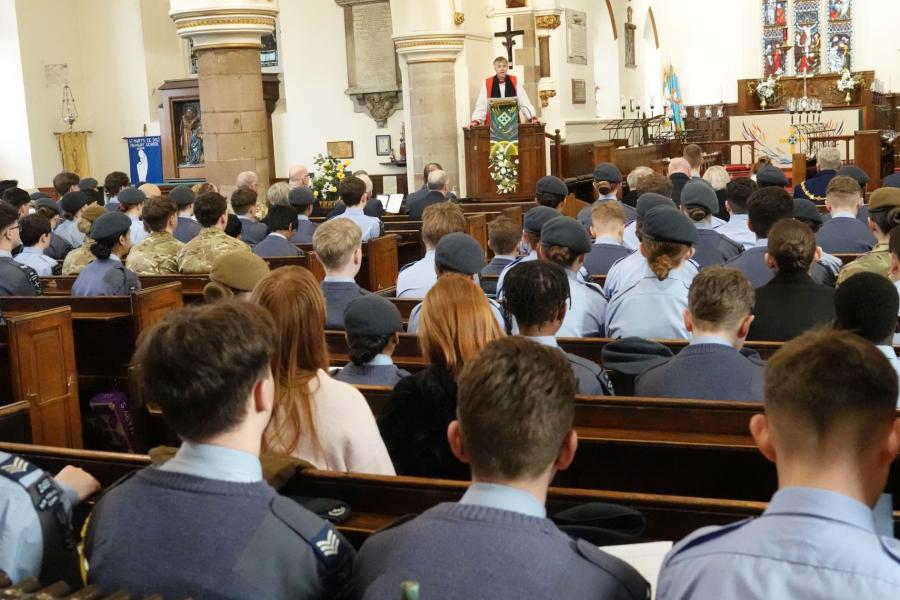Exodus and Liberation
by Charmian Manship, Chair of the Criminal Justice Affairs Group
Thus says the Lord, the God of Israel: “Let my people go.” Exodus 5:1
These words begin the process of exodus, the escape of the Israelite slaves from the power and oppression of Pharaoh in Egypt. “Let my people go” said God through his servant Moses to Pharaoh. “Let my people go” sang the slaves on the plantations of the West Indies to their slave masters, in the most famous African American spiritual of all – “Go down Moses.”
When Israel was in Egypt land, LET MY PEOPLE GO
Oppress’d so hard they could not stand, LET MY PEOPLE GO
Go down, Moses, way down in Egypt’s land
Tell old Pharaoh – LET MY PEOPLE GO.
I speak today as Chair of the Criminal Justice Affairs Group for the Diocese of Worcester, a group passionately concerned with anything connected to the world of criminal justice, and a group representing every branch of that world – the courts, police, prisons, probation – many of us now retired but with a lifetime’s experience in that world, mostly at the highest level.
Of whom does God say today, “Let my people go”? To whom does he say, “Let my people go”? We begin Lent with the acknowledgement of millennia of injustice for which humans are responsible stretching right back to ancient Egypt. Slavery, oppression, cruelty and violence caused by the abuse of power and the apathetic failure of the majority to stand up to that power. Pharaoh saw himself as the unchallenged ruler, godlike in his power and authority, and we don’t have to look far to see his like today. Pharaoh did not want to hear from an unknown Hebrew challenging his power and authority. He resisted. More recently, the huge stain on humanity’s history left by the enslavement of Africans working the plantations of white people reflects those earlier slaves in Egypt. The Israelite story spoke to the plantation slaves with the same messages of freedom and liberation – “Let my people go.” Those in power, the slave owners, resisted.
Shockingly there are still slaves in the modern world, now. But today I want to focus on those enslaved by the vicious circles of poverty, racism, mental illness, unemployment. A shocking percentage of such people are in our prisons. How does prison help mental illness? It doesn’t. And yet the Prison Reform Trust estimates that 70% of this country’s prisoners suffer from mental illness. Injustice is built into a system whose knee-jerk reaction to crime is prison, for ever longer periods of time, regardless of the circumstances that have brought each offender into conflict with the law. I am not suggesting that we fling wide the prison gates and let everybody out. But I am suggesting that we look very carefully at the huge numbers this country imprisons – significantly more than any other country in western Europe – and examine not just their incarceration in our gaols, but their imprisonment within systems and vicious circles of poverty and background.
God wants his people to be free. He sent his only son to set us all free, regardless of race, poverty or ill health. He made us all in his image. How is it that we are so blind to that image in those who have crossed the criminal line? The first word Jesus uttered in the gospels was “Repent” – make a fresh start, begin again. And the last sight we have of Jesus in the gospels is in his risen state, living a new, transformed life. Christianity holds repentance and new life at its heart. Why do we not offer the opportunity of repentance, that gift of new life to those in our prisons, those caught up in the criminal justice system? Who are we to sit in judgement on those whose life experiences have denied them many of the things we take for granted? “Ley my people go” says God.
As we begin Lent, don’t let God’s cry fall on deaf ears.
Music: Traditional, interpreter: Les Petits Chanteurs de Montigny, CC BY-SA 2.0 https://creativecommons.org/licenses/by-sa/2.0, via Wikimedia Commons

#LiveLent: Embracing Justice is the Church of England’s theme for Lent 2022.
This Lent we are called to reflect on the injustices of the world and ask what God is calling us to do about them. Over forty days, we step into God’s work in the here and now – and in doing so we move from brokenness towards wholeness.
Find out more and download resources from the Church of England website.

